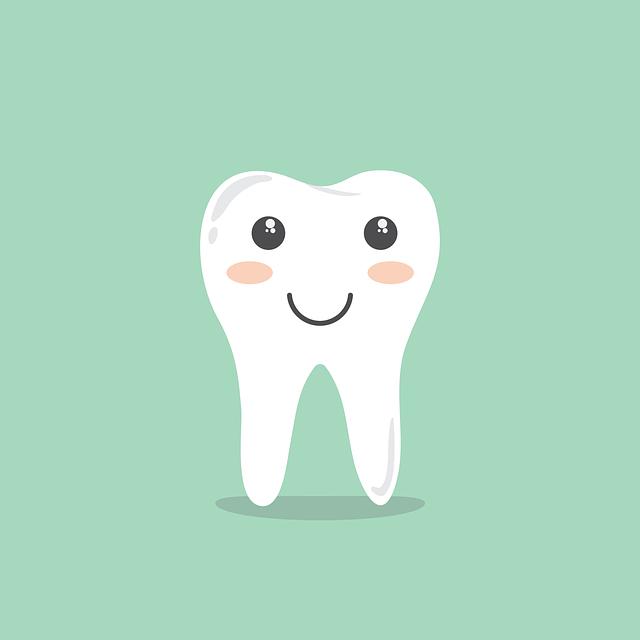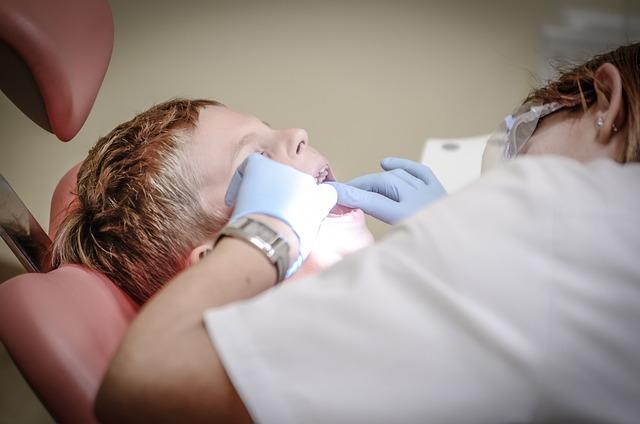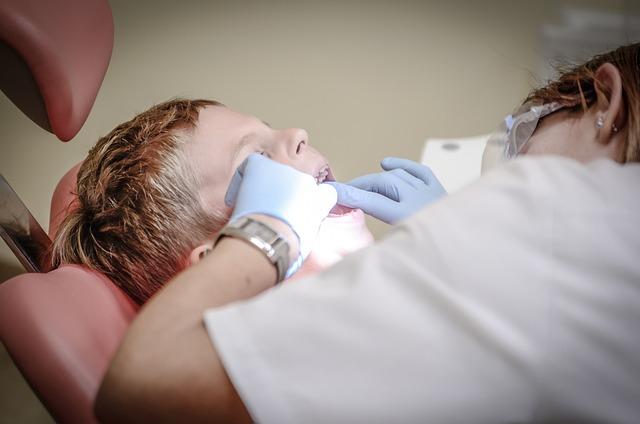How to Make Salt Water for Teeth: DIY Recipe
Are you looking for a natural and effective way to enhance your dental hygiene routine? Look no further! In this article, we will guide you through a simple and straightforward DIY recipe to make salt water for teeth. With its numerous benefits, salt water has been used for centuries as a natural remedy to promote oral health. Whether you’re seeking to combat bad breath, reduce gum inflammation, or simply maintain a healthy smile, this confident and knowledgeable guide will empower you with the necessary steps to create your very own salt water solution. So, let’s dive in and discover the wonders of this ancient dental elixir!
1. Understanding the Benefits of Salt Water for Dental Health
When it comes to dental health, salt water has numerous benefits that are often overlooked. Incorporating salt water into your oral hygiene routine can help promote a healthier mouth and prevent various dental issues. Here are some key advantages of using salt water:
- Antibacterial properties: Salt water acts as a natural disinfectant, killing harmful bacteria that can cause gum disease and tooth decay.
- Gentle on gums: Unlike some mouthwashes that may contain alcohol or harsh chemicals, salt water is gentle on the gums and can provide relief for those with sensitive gums or mouth sores.
- Reduces inflammation: Swishing with salt water can help reduce inflammation in the mouth, providing relief for gum swelling, sore throat, or post-dental procedure discomfort.
- Bad breath prevention: Salt water can neutralize odors and freshen breath by eliminating bacteria that contribute to bad breath.
- Cost-effective: Salt water is an affordable and easily accessible alternative to commercial mouthwashes, making it a practical option for maintaining dental health.
By incorporating salt water into your oral hygiene routine, you can harness its natural benefits and improve your overall dental health. Remember to consult with your dentist or dental professional for personalized advice on how to best incorporate salt water into your oral care routine.

2. Step-by-Step Guide: Creating Your Own Salt Water Solution for Oral Care
Creating your own salt water solution for oral care is simple and cost-effective. Follow this step-by-step guide to make your own solution at home:
1. Gather the necessary ingredients:
– Salt: Use high-quality sea salt or table salt.
– Water: Choose filtered or boiled water to ensure cleanliness.
2. Measure the ingredients:
– For a gentle solution, mix 1/2 teaspoon of salt with 8 ounces of water.
– For a stronger solution, increase the salt to 1 teaspoon.
3. Dissolve the salt:
– Pour the measured salt into the water.
– Stir the mixture until the salt is completely dissolved.
4. Rinse your mouth:
– Take a small sip of the salt water solution.
– Swish it around your mouth for 30 seconds to 1 minute.
– Spit the solution out, being careful not to swallow it.
5. Repeat as needed:
– Use the salt water solution 2-3 times a day or as recommended by your dentist.
– Remember to make a fresh batch each time to ensure hygiene.
Using a salt water solution for oral care provides several benefits. The salt acts as a natural disinfectant, helping to kill bacteria and reduce inflammation in your mouth. It can also soothe minor mouth irritations and promote faster healing. Incorporating this simple solution into your oral care routine can contribute to healthier teeth and gums.
3. The Science Behind Salt Water: Why It Works for Teeth and Gums
Salt water has long been recognized for its benefits in promoting oral health. The science behind its effectiveness lies in its natural antibacterial properties. When used as a mouth rinse, salt water can help kill harmful bacteria that reside in the mouth, reducing the risk of gum disease and tooth decay.
One of the key reasons why salt water works for teeth and gums is its ability to create an inhospitable environment for bacteria to thrive. Salt, or sodium chloride, is a natural disinfectant that can help kill bacteria and prevent their growth. This is particularly effective against the Streptococcus mutans bacteria, which is a major contributor to tooth decay.
In addition to its antibacterial properties, salt water also has soothing and healing effects on the gums. It can help reduce inflammation and swelling, providing relief for those suffering from gum disease or irritation. Salt water can also aid in the healing process of oral wounds, such as canker sores or after dental procedures.
Using salt water as a mouth rinse is a simple and cost-effective way to maintain good oral hygiene. However, it is important to remember that salt water should not replace regular brushing and flossing. It is best used as a supplement to your daily oral care routine. So, next time you’re looking for a natural way to support your oral health, consider incorporating salt water rinses into your regimen.
4. Selecting the Right Type of Salt for Your DIY Salt Water Rinse
When it comes to , it’s important to consider a few key factors. The type of salt you choose can have an impact on the effectiveness and safety of your rinse. Here are some tips to help you make the right choice:
1. Use pure sea salt: Opt for pure sea salt that is minimally processed and free from additives. This type of salt is rich in minerals and can provide additional benefits for your oral health.
2. Avoid table salt: Table salt often contains iodine and anti-caking agents that may be harmful if ingested. It is best to avoid using table salt in your DIY salt water rinse.
3. Look for fine-grain salt: Fine-grain salt dissolves more easily in water and ensures a smooth rinse. It also makes it easier for the salt to penetrate the tissues of your mouth for maximum effectiveness.
4. Consider Himalayan pink salt: This type of salt is known for its high mineral content and can provide additional therapeutic benefits. However, it may have a slightly different taste compared to regular sea salt.
By , you can ensure a safe and effective oral care routine. Remember to always follow the recommended ratios when mixing salt and water for your rinse to avoid any potential adverse effects.
5. Mixing the Perfect Salt Water Solution: Proportions and Ingredients
When it comes to creating the perfect salt water solution, getting the proportions and ingredients right is crucial. Here’s a step-by-step guide to help you mix it like a pro:
- Choose the right salt: Not all salts are created equal. Make sure to use a high-quality sea salt or aquarium salt specifically designed for saltwater aquariums. Avoid table salt or rock salt, as they may contain additives that can harm your aquatic pets.
- Determine the salinity level: Different marine organisms thrive in different salinity levels. Use a hydrometer or refractometer to measure the salinity of your water, and adjust it accordingly to meet the needs of your aquarium inhabitants.
- Calculate the amount of salt: Refer to a salinity chart or use a saltwater mixing calculator to determine the correct amount of salt needed. Measure it carefully to ensure accuracy.
- Dissolve the salt: Fill a clean container with dechlorinated water, preferably using reverse osmosis (RO) or distilled water. Slowly add the salt while stirring continuously until it is fully dissolved.
- Aerate the solution: Properly oxygenating the salt water solution is essential. Use an air stone or powerhead to create water movement and promote gas exchange, ensuring an adequate oxygen supply for your marine life.
- Allow the solution to mature: Let the salt water solution sit for at least 24 hours before using it in your aquarium. This will allow any impurities to settle and ensure a stable environment for your aquatic pets.
By following these simple steps, you can confidently mix the perfect salt water solution for your aquarium, providing a healthy and thriving habitat for your marine inhabitants.
6. Incorporating Salt Water into Your Oral Hygiene Routine: Best Practices
Salt water can be a great addition to your oral hygiene routine, as it offers numerous benefits for your teeth and gums. Here are some best practices to consider when incorporating salt water into your oral care routine:
– Rinse with warm salt water: Start by dissolving half a teaspoon of salt in a glass of warm water. Gently swish the solution around your mouth for about 30 seconds, focusing on the areas around your gums and teeth. This can help remove any food particles and bacteria, reducing the risk of gum inflammation and infections.
– Use it as a natural mouthwash: Salt water acts as a natural mouthwash, helping to freshen your breath and kill bacteria in your mouth. After brushing and flossing, simply rinse your mouth with the salt water solution for an extra clean feeling.
– Ease toothache and gum soreness: Salt water can provide temporary relief for toothaches and gum soreness. The salt helps reduce inflammation and can soothe any discomfort you may be experiencing.
Remember, while salt water can be beneficial for your oral health, it should not replace regular brushing and flossing. Incorporating salt water into your routine can be a great supplement to your existing oral care practices, helping to maintain a healthy mouth and prevent oral issues.
7. How to Use Salt Water Rinse Effectively for Optimal Dental Health
Using a salt water rinse is a simple and effective way to maintain optimal dental health. By following these steps, you can ensure that you are using this natural remedy to its fullest potential:
1. Prepare the solution:
- Start by dissolving half a teaspoon of salt in eight ounces of warm water.
- Make sure the salt is completely dissolved before using the solution.
2. Rinse your mouth:
- Take a small sip of the salt water solution and swish it around your mouth for about 30 seconds.
- Make sure to cover all areas of your mouth, including the gums and teeth.
- Do not swallow the solution; spit it out after rinsing.
3. Repeat the process:
- For optimal results, use the salt water rinse two to three times a day.
- It is especially beneficial to use it after meals or before bedtime.
By incorporating this simple routine into your oral care regimen, you can enjoy the benefits of a salt water rinse and maintain excellent dental health. Remember, consistency is key, so make it a habit to include this natural remedy in your daily routine.
8. Potential Side Effects and Precautions When Using Salt Water for Teeth
While using salt water for teeth can be an effective natural remedy, it’s important to be aware of potential side effects and take necessary precautions. Here are some important points to keep in mind:
- Oral Irritation: In some cases, using salt water for oral rinsing may cause mild irritation, especially if you have sensitive gums or mouth sores. If you experience any discomfort or irritation, it is recommended to discontinue use and consult with your dentist.
- Excessive Use: Just like with any oral hygiene practice, moderation is key. Using salt water excessively or too frequently may disrupt the natural balance of your oral microbiome, leading to potential oral health issues. It is advisable to limit salt water rinsing to once or twice a day, unless otherwise instructed by your dentist.
- Salt Sensitivity: Individuals with known salt sensitivities or high blood pressure should exercise caution when using salt water for teeth. It is advisable to consult with a healthcare professional before incorporating salt water rinsing into your oral care routine.
- Proper Dilution: To avoid potential harm, it is essential to dilute the salt water solution correctly. Using too much salt can be abrasive and might damage tooth enamel or irritate oral tissues. A safe and effective ratio is typically ½ teaspoon of salt dissolved in 8 ounces of warm water.
By being mindful of these potential side effects and taking necessary precautions, salt water rinsing can be a beneficial addition to your oral care routine. However, if you have any concerns or experience any adverse reactions, it is always best to consult with a dental professional for personalized advice.
9. Exploring Additional Natural Remedies: Salt Water Alternatives for Oral Care
When it comes to oral care, salt water has long been touted as a natural remedy for various dental issues. However, there are alternative options that can be equally effective in maintaining oral health. These alternatives offer unique benefits and may be more accessible or convenient for individuals.
1. Baking Soda Solution: A simple and affordable alternative to salt water is a baking soda solution. Mix half a teaspoon of baking soda with warm water and use it as a mouthwash. Baking soda helps neutralize acids in the mouth and can freshen breath. Additionally, it has antibacterial properties that can help combat harmful bacteria.
2. Hydrogen Peroxide Rinse: Another effective alternative is a hydrogen peroxide rinse. Dilute three parts water with one part 3% hydrogen peroxide and use it as a mouthwash. Hydrogen peroxide has antiseptic properties that can kill bacteria and reduce plaque. However, it should be used with caution and not swallowed.
3. Herbal Mouthwash: For those seeking a more natural option, herbal mouthwashes can be a great choice. Look for mouthwashes that contain herbs like peppermint, tea tree oil, or chamomile. These herbs have antibacterial and anti-inflammatory properties that can promote oral health and soothe gum irritation.
By exploring these salt water alternatives, individuals can find an oral care regimen that suits their preferences and needs. Remember, maintaining good oral hygiene practices such as regular brushing, flossing, and dental check-ups are essential for overall oral health.
10. Conclusion: Embracing the Benefits of Salt Water for a Healthier Smile
Salt water has long been known for its various health benefits, and when it comes to dental health, it is no exception. By embracing the benefits of salt water, you can enjoy a healthier smile and improve your overall oral hygiene.
One of the key advantages of salt water is its natural ability to fight bacteria and reduce inflammation. Gargling with salt water can help alleviate sore throats and heal mouth sores. Additionally, it can also reduce plaque buildup and prevent gum disease, making it an excellent addition to your oral care routine.
Furthermore, salt water can aid in the healing process after dental procedures or surgeries. Its antiseptic properties can help speed up the recovery and promote tissue regeneration. Incorporating salt water rinses into your post-treatment care can greatly contribute to a smoother and more comfortable healing experience.
Overall, salt water is a simple yet powerful tool for maintaining optimal oral health. By harnessing its benefits, you can achieve a healthier smile, prevent dental issues, and enhance your overall well-being. So why not give salt water a try and experience the natural wonders it has to offer?
Frequently Asked Questions
Q: What is the purpose of making salt water for teeth?
A: The purpose of making salt water for teeth is to create a natural and cost-effective mouth rinse that can help maintain oral health.
Q: How does salt water benefit teeth?
A: Salt water can benefit teeth in several ways. It acts as a natural antibacterial agent, helping to kill harmful bacteria in the mouth. It also helps reduce inflammation, soothes sore gums, and promotes healing in the case of minor mouth irritations.
Q: What ingredients are needed to make salt water for teeth?
A: The ingredients needed to make salt water for teeth are simple and easily accessible. All you need is salt and water. It is recommended to use natural sea salt or non-iodized salt for best results.
Q: How do I make salt water for teeth?
A: To make salt water for teeth, start by dissolving half a teaspoon of salt in a cup of warm water. Stir until the salt is completely dissolved. Your salt water mouth rinse is now ready to use.
Q: How often should I use salt water for teeth?
A: Salt water can be used as a mouth rinse multiple times a day. However, it is generally recommended to use it at least once a day, preferably after brushing your teeth.
Q: How long should I rinse my mouth with salt water?
A: When using salt water as a mouth rinse, swish it around your mouth for about 30 seconds to one minute. This duration allows enough time for the salt water to come into contact with your teeth and gums.
Q: Are there any precautions or side effects to consider?
A: Salt water is generally safe to use and has minimal side effects. However, it is important to avoid swallowing the salt water, as excessive consumption can lead to an imbalance of electrolytes in the body. If you experience any adverse effects, discontinue use and consult your dentist.
Q: Can salt water replace regular toothpaste and mouthwash?
A: Salt water can be used as a supplement to regular toothpaste and mouthwash, but it is not a substitute. While it has antibacterial properties and can help maintain oral health, it does not provide the same benefits as fluoride toothpaste or specialized mouthwashes.
Q: Is making salt water for teeth suitable for everyone?
A: Salt water rinses are generally suitable for most individuals. However, if you have specific dental conditions or concerns, it is best to consult with your dentist before incorporating salt water rinses into your oral care routine.
Q: Can salt water help with specific dental issues?
A: Salt water can provide relief for common dental issues such as gum inflammation, minor mouth sores, and bad breath. However, for more serious dental issues, it is important to seek professional advice from a dentist.
Final Thoughts
In conclusion, making salt water for teeth is a simple and effective DIY recipe that can provide numerous oral health benefits. By following a few easy steps, you can create a natural mouth rinse that helps combat bacteria, reduce inflammation, and promote overall oral hygiene. Remember to use sea salt or table salt without additives, as they offer the most benefits. Incorporating this natural remedy into your oral care routine can be a great addition to your overall dental health. So why not give it a try and experience the refreshing and cleansing effects of salt water for your teeth? Your smile will thank you!






